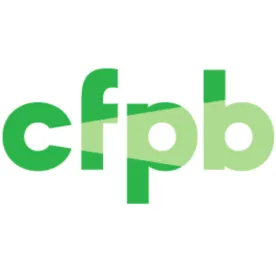Highlights
The Consumer Financial Protection Bureau intends to step up enforcement and oversight for statements regarding FDIC insurance
Digital assets and stablecoins were identified in reference to misuse of FDIC logo and name and insurance misrepresentations
Claims by fintech offerors that products are FDIC “regulated” or “eligible for FDIC insurance” may violate Consumer Financial Protection Act if products are not actually insured
In conjunction with a new final rule, the Consumer Financial Protection Bureau (CFPB) issued an enforcement memorandum providing guidance that addresses deceptive acts or practices for using the name or logo of the Federal Deposit Insurance Corporation (FDIC). The guidance also outlines how misrepresentations about deposit insurance, even those that are not “knowing,” may violate the Consumer Financial Protection Act (the Act).
Under applicable rules, financial institutions cannot misuse the name or logo of the FDIC or make deceptive representations about deposit insurance, eligibility for FDIC insurance, or pass-through FDIC insurance coverage.
The CFPB highlighted that issues relating to claims of FDIC insurance coverage have taken on renewed importance with the emergence of financial technologies and products, specifically cryptocurrencies and stablecoins. The CFPB also identified the risks posed to consumers if they are lured into purchasing and using certain financial products, services or assets through misrepresentations or false advertising relating to insurance coverage.
The Act prohibits deceptive acts and practices, including misleading representations involving the name or logo of the FDIC or relating to insurance coverage for deposits and accounts. Where financial technology companies, stablecoin offerors, financial product offerors, and deposit providers make statements about the FDIC, FDIC membership, and the direct or indirect insurance coverage applicable to products or accounts, these statements are subject to CFPB scrutiny and must be designed to comply with the Act provisions and prohibitions.
Notably, the CFPB guidance emphasizes two primary concerns:
-
Misuse of FDIC name and misrepresentations of insurance coverage violate the CFPA. The misuse of the name or logo of the FDIC and false advertising or misrepresentations about insurance coverage may be material misrepresentations in violation of the Act.
-
Misstatements harm customers and pose significant risk of unexpected losses. The CFPB noted emerging financial products and services, including digital assets and stablecoins, likely present risks to consumers, particularly in times of financial distress, because they are likely to rely on deceptive advertisements indicating that such uninsured products or services are, in fact, FDIC-insured.
The guidance underscores prohibited claims that financial products or services are “regulated” by the FDIC, “insured,” or “eligible for” FDIC insurance as deceptive if those claims indicate to consumers that the product or service is FDIC-insured when that is not. For example, applicable rules require that certain nonbank entities that place a customer’s deposits into an insured depository institution must identify the insured institution into which the funds may be placed so that consumers can verify the status of the institution and its FDIC insurance coverage.
Identifying emerging financial technologies and digital assets in the notice materials, the CFPB, in connection with its April notice regarding nonbank companies, puts stablecoin and virtual currency businesses on notice that the CFPB regime may apply to their products and activities to the extent they make statements regarding the applicability or eligibility of their products and accounts for FDIC coverage. Digital asset, digital dollar, and stablecoin offerors making statements concerning related or underlying insured accounts relating to or supporting digital asset offerings comply with updated CFPB and FDIC rules.
The new rules provide procedures for identifying and investigating conduct relating to the use of the FDIC name and logo and statements relating to covered products and accounts, as well as standards for evaluating potential violations. Digital asset, financial technology, and financial service providers should consider making careful analysis regarding statements indicating FDIC coverage for products, accounts, and services.





 />i
/>i

